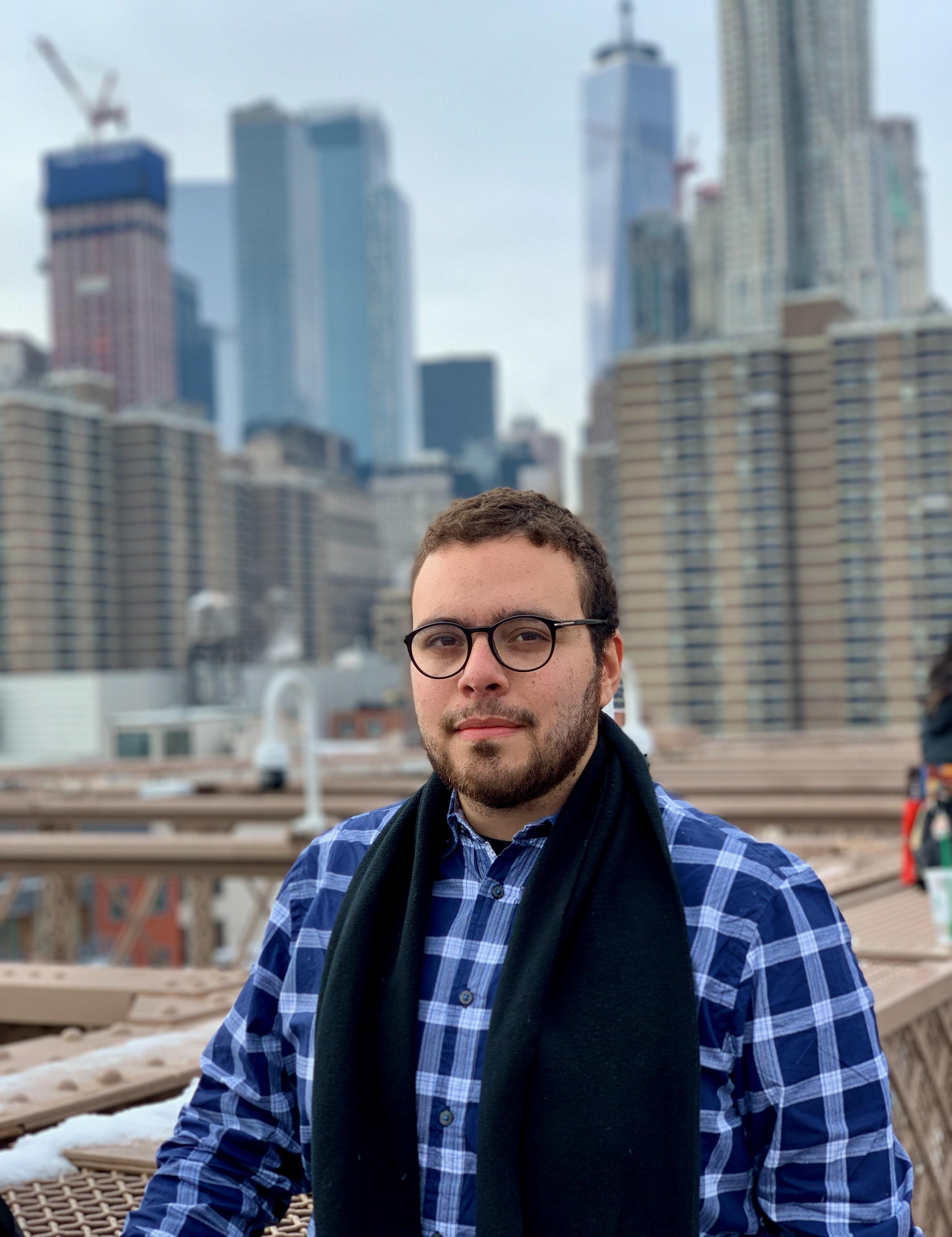
Pursuing an internship as PhD student is a great way to gain experience and pursue your goals—be it in academia or beyond. Iago Bojczuk, a second year Sociology PhD student, was an intern at the World Bank’s Chief Economist Office (Infrastructure Vice-Presidency) from August 2022 to February 2023, working on analytical projects with the Bank’s Global Digital Development Practice.
Below he reports on his experience at the World Bank, how it not only enhanced his technical abilities, but also gave him a deeper understanding of the challenges and opportunities in driving digital development investments across developing countries. He explains how his internship was relevant to his PhD research and gives advice on applying through the Cambridge Grand Challenges scheme and funded by the ESRC Doctoral Training Partnership for Social Sciences.
The aim of pursuing a six-month internship during my PhD in Sociology was to gain practical experience and expand my skills beyond academic work. Given the topic of my PhD research focusing on data centres and the formation of cloud regions in Brazil, I was eager to work on topics related to digital development, and I believed that the World Bank provided the perfect environment to achieve this goal. The internship allowed me to apply my academic knowledge of digital development, technology policy, and sustainable development within the context of Global South countries. By interning at the World Bank, I hoped to deepen my understanding of these complex, interconnected issues while gaining invaluable hands-on experience.
As I was concluding my first year as a PhD student in the Department of Sociology, I applied for an internship at the World Bank within both the Chief Economist Office of the Infrastructure Vice-Presidency. I was particularly attracted to the World Bank's work due to its reputation for excellence and the training resources it offers to professionals conducting doctoral research in both social sciences and more technical fields, such as computer science and applied economics. From the outset, I was impressed by the diversity of the World Bank's community of highly qualified professionals and its interdisciplinary approach to digital development projects. These factors inspired me to pursue an internship opportunity with a multilateral organization and contribute to its efforts in assisting developing countries to alleviate poverty.
The internship exceeded my expectations and fulfilled my objectives. I was exposed to a diverse range of topics in digital development, enabling me to focus on different projects in both operational and research contexts. For instance, I had the opportunity to work on a decentralized data center network project in Argentina, explore the economics of cybersecurity, and address issues related to agricultural technology in the Latin America and Caribbean region. These experiences allowed me to bridge my academic training with the practical work of a large multilateral organization and contribute to reports and paper publications—precisely what I had aimed for.
It took me a few weeks to familiarize myself with the workplace environment and comprehend the workflow and organizational structure of my team within the larger World Bank organization. I found it helpful to connect with other consultants and interns, which allowed me to quickly become fully independent while still benefiting from their guidance and incorporating their expectations into my work. Overall, the process of settling in and understanding the workplace environment was smooth, even though I was working remotely and collaborating with colleagues from around the world.
Working alongside colleagues from diverse backgrounds proved to be an enriching experience. Initially, I felt intimidated, as most of my colleagues had backgrounds in economics, and I was concerned that I might not possess the necessary skills to excel in the projects. However, I soon discovered that my background in Critical Studies of Media and Technology was highly valued within the organization, Over time, I was able to enhance my data skills and effectively communicate with colleagues from economics and more technical fields. The diversity of backgrounds and perspectives contributed a unique set of skills and insights, creating a dynamic and collaborative work environment.
My interdisciplinary academic background proved useful throughout the internship. The World Bank values diverse academic perspectives and encourages interns to bring their unique knowledge and skills to the table. I found that my colleagues, many of whom held advanced degrees from top universities and had substantial experience in economic development research, were receptive to incorporating my ideas and research into discussions. Through my work with various colleagues, I was also exposed to various methods and techniques used in development economics research, enabling me to further develop my data analysis and econometric modeling skills, at least from a conceptual perspective.
My internship was an enriching experience on a personal level as well. I had the opportunity to work with a diverse team of colleagues from countries such as Ecuador, Italy, Israel, Türkiye, the United States, and others. The organization encourages interns to utilize their unique knowledge and skills, so I was able to leverage my cultural background as a Brazilian and Latin American in this role. My fluency in both Portuguese and English, as well as working knowledge in Spanish, proved invaluable, allowing me to conduct research and reach out to potential partners, which was a critical component of my internship program as I engaged with stakeholders outside the World Bank. The ability to communicate in these languages enabled me to bridge cultural and language barriers, making it easier to understand and collaborate with colleagues and partners.
During my internship, I developed the ability to engage in conversations with colleagues from various backgrounds, encompassing fields such as economics, engineering, and policy. Together, we forged a common language transcending our individual areas of expertise. This aspect of the experience was genuinely enjoyable and will undoubtedly have a lasting impact on my career moving forward. Moreover, I was able to enhance my data science skills by working with datasets and exploring methodologies in country-level economic research.
I also had the opportunity to attend numerous virtual panels and events organized by different departments and sectors of the World Bank Group. Topics spanned from renewable energy to digital infrastructure, offering valuable insights into current trends and developments. Attending these events was a fantastic experience, as they were open to all staff members, allowing me to learn from experts in the field. This exposure has granted me a deeper understanding of the economic and technological challenges facing countries and has equipped me with the knowledge and skills to address these challenges in the future.
The global reach of the World Bank's teams has demonstrated to me the immense potential for impact when working with developing countries, and I hope to continue working at the intersection of academia and practice. I don't see myself as a traditional academic, but rather, I seek a career closely connected to the knowledge produced by academics and working alongside governments, civil society organizations, and the private sector. In this sense, the internship has shown me that there are organizations where I can engage in both without necessarily having to prioritize one over the other until I gain more clarity on the career I hope to build.
My advice to prospective applicants for the Cambridge Grand Challenges (CGC) would be to make your academic and professional goals known to your supervisor at the outset. I found it helpful to plan for an internship during the second year of my PhD, as I knew it would be difficult to find time during my third year with the focus on writing up my dissertation. That way, you can take advantage of the internship to bolster your academic training while also potentially informing your post-PhD research and career plans. In other words, I encourage other PhD students interested in applying for this scheme to take the lead in your learning journey and engage closely with staff who are available to help and guide you through the process. It is a long and, at times, exhausting journey. Ask questions, research the internships of interest, and determine how you can best contribute to the aims of your potential host organization.
In short, students should be proactive during the search process and look for relevant societal challenges to which your academic background will be applicable while working and learning from an organization. Cambridge offers incredible opportunities for networking on a global scale, so do not forget to take advantage of that during your search. Organizations around the world are often eager to host a Cambridge PhD student for an internship, so when conducting your research, consider how your work could positively impact a cause that aligns with your career goals and interests. Ultimately, pursuing an internship during your PhD is an excellent way to gain experience and achieve your goals and provide more clarity on your own doctoral project.




